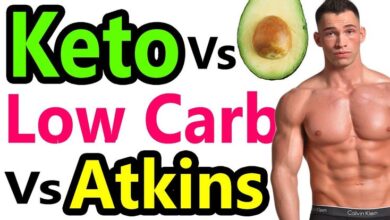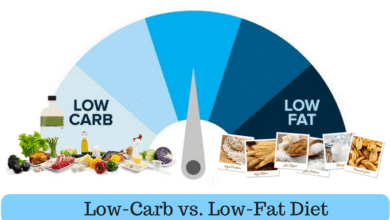What Is Exogenous Ketone and How Do It Works with Keto? (Benefits, Risks & Real Science)

What Are Exogenous Ketone and How Do They Work with Keto?
If you’ve been diving into the world of the ketogenic diet, chances are you’ve heard whispers—or loud claims—about exogenous ketones. Marketed as magic supplements for fat loss, energy, and brainpower, they’ve stirred plenty of curiosity. But what are they really, and how do they work alongside the keto diet? Let’s break it all down in plain language.
Understanding Ketosis: The Foundation of Keto
Before exogenous ketones make sense, you need to understand ketosis itself. Normally, your body uses glucose from carbohydrates as its primary fuel. When carbs are scarce—like during keto—it shifts gears and starts producing ketones from fat in the liver. These ketones fuel your brain, muscles, and organs.
This metabolic switch is powerful because it turns your body into a fat-burning machine. Exogenous ketones are designed to mimic this natural process—but from outside the body.
Exogenous vs Endogenous Ketones
Think of ketones in two categories:
- Endogenous ketones: Produced by your own liver during carb restriction or fasting.
- Exogenous ketones: Provided by supplements like ketone salts or esters.
So, when you drink or swallow exogenous ketones, you’re essentially pouring ketones directly into your bloodstream—bypassing the need to wait for your body to create them naturally.
Types of Exogenous Ketones
There are two main forms you’ll find on the market:
- Ketone Salts – These bind ketones to minerals like sodium, potassium, or calcium. They’re cheaper but less potent.
- Ketone Esters – These are stronger and raise blood ketone levels more effectively, but they’re expensive and often taste terrible.
Both forms promise to deliver a fast track into ketosis—but how true is that?
How Exogenous Ketones Work with the Keto Diet
When you take exogenous ketones, your blood ketone levels rise almost instantly. That can:
- Provide quick energy, especially for the brain.
- Reduce symptoms of the “keto flu.”
- Help athletes push through endurance workouts.
But here’s the catch: they don’t automatically make your body burn fat. They simply add ketones on top of whatever your metabolism is doing. So, if you’re still eating carbs, you may not experience true fat-burning benefits.
Potential Benefits of Exogenous Ketones
Let’s get into the specifics. Here are the most commonly reported benefits:
Mental Clarity and Focus
The brain loves ketones. Many users report sharper focus, less brain fog, and even improved productivity.
Energy Boost
Because ketones provide a steady fuel source, athletes and busy professionals often use them as an alternative to sugar-driven energy drinks.
Appetite Suppression
Some studies suggest ketones may reduce hunger hormones, which helps with calorie control.
Reducing Keto Flu
Exogenous ketones can ease the headaches, fatigue, and mood swings many experience when first transitioning to keto.
Risks and Side Effects
Not everything about exogenous ketones is rosy. Some drawbacks include:
- Digestive distress (nausea, diarrhea, stomach cramping).
- Electrolyte imbalances, especially with ketone salts.
- Cost concerns, since high-quality supplements are pricey.
- False sense of progress if you rely on supplements without sticking to a keto lifestyle.
Do Exogenous Ketones Help with Weight Loss?
This is the million-dollar question. While exogenous ketones raise ketone levels, that doesn’t mean you’re burning body fat. In fact, your body may use the supplemental ketones for energy first—before tapping into fat stores.
That said, they may help indirectly by reducing hunger and making keto easier to sustain long term. Think of them as a support tool, not a fat-melting pill.
Exogenous Ketones and Exercise Performance
For endurance athletes, ketones can serve as a stable fuel that avoids the crash of high-sugar pre-workouts. However, research is mixed—while some studies show better performance, others don’t. Strength athletes, in particular, may find carbs still outperform ketones for explosive energy.
Exogenous Ketones vs MCT Oil
Another popular keto supplement is MCT oil (medium-chain triglycerides). Here’s a simple comparison:
| Supplement | How It Works | Best For | Downsides |
|---|---|---|---|
| Exogenous Ketones | Directly raises blood ketones | Fast mental/physical boost | Expensive, short-lasting |
| MCT Oil | Converts into ketones in the liver | Long-term fat energy | Digestive upset in high doses |
Many keto followers actually use both together, depending on their needs.
Are Exogenous Ketones Safe?
For most healthy adults, short-term use is safe. But if you have medical conditions—especially diabetes or kidney issues—consult a doctor before use. Pregnant and breastfeeding women should avoid them unless cleared by a healthcare provider.
Who Should Consider Exogenous Ketones?
- New keto dieters struggling with “keto flu.”
- Athletes experimenting with low-carb performance.
- Busy professionals looking for sharper focus without sugar crashes.
But if you’re already fat-adapted, you may not need them at all.
The Science Behind Exogenous Ketones
Current research shows promise for neurological conditions (like Alzheimer’s and epilepsy) and for endurance sports. But for weight loss alone, the evidence is weaker. Still, the science is evolving, and we’ll likely see more breakthroughs in the coming years.
(For further reading, check reputable sources like Healthline’s keto guide and Harvard Medical School.)
How to Take Exogenous Ketones
They usually come in powder or liquid form. The best time to take them is:
- Morning, for mental clarity.
- Before workouts, for energy.
- During the first week of keto, to ease transition symptoms.
Start small and adjust based on tolerance.
Common Myths About Exogenous Ketones
- “They put you in ketosis instantly.” – True for blood levels, but not the same as natural fat-burning ketosis.
- “They burn body fat directly.” – False; they provide energy but don’t melt fat automatically.
- “They replace the keto diet.” – False; supplements can’t undo a high-carb lifestyle.
Cost vs Value: Are They Worth It?
Exogenous ketones often cost $60–$100 per tub. Whether they’re worth it depends on your goals. If you’re seeking mental clarity or a transition aid, they can be valuable. But for long-term fat loss, sticking to keto foods is more effective and budget-friendly.
Final Thoughts: Should You Try Exogenous Ketone?
Exogenous ketones aren’t magic, but they can be a helpful tool. If you’re serious about keto, they may ease your journey, sharpen your mind, and give you an edge in workouts. But remember—the foundation of keto success will always be whole foods, consistency, and lifestyle, not supplements.
Check Also 5 Best Exogenous Ketones to Pair with Keto Meals for Faster Fat Burn
FAQs
1. Can exogenous ketone replace the keto diet?
No, they can’t. They raise ketone levels but don’t replace carb restriction or fat adaptation.
2. Do exogenous ketones break a fast?
Yes, technically they provide calories and break a fast, though they still keep you in ketosis.
3. How long do exogenous ketones last in the body?
Usually 2–4 hours, depending on the dose and your activity level.
4. Can exogenous ketones cause kidney damage?
Not in healthy people, but those with kidney issues should avoid them due to the mineral load in ketone salts.
5. Are exogenous ketones better for weight loss or brain health?
They show more promise for brain health and mental clarity than direct fat loss.





One Comment